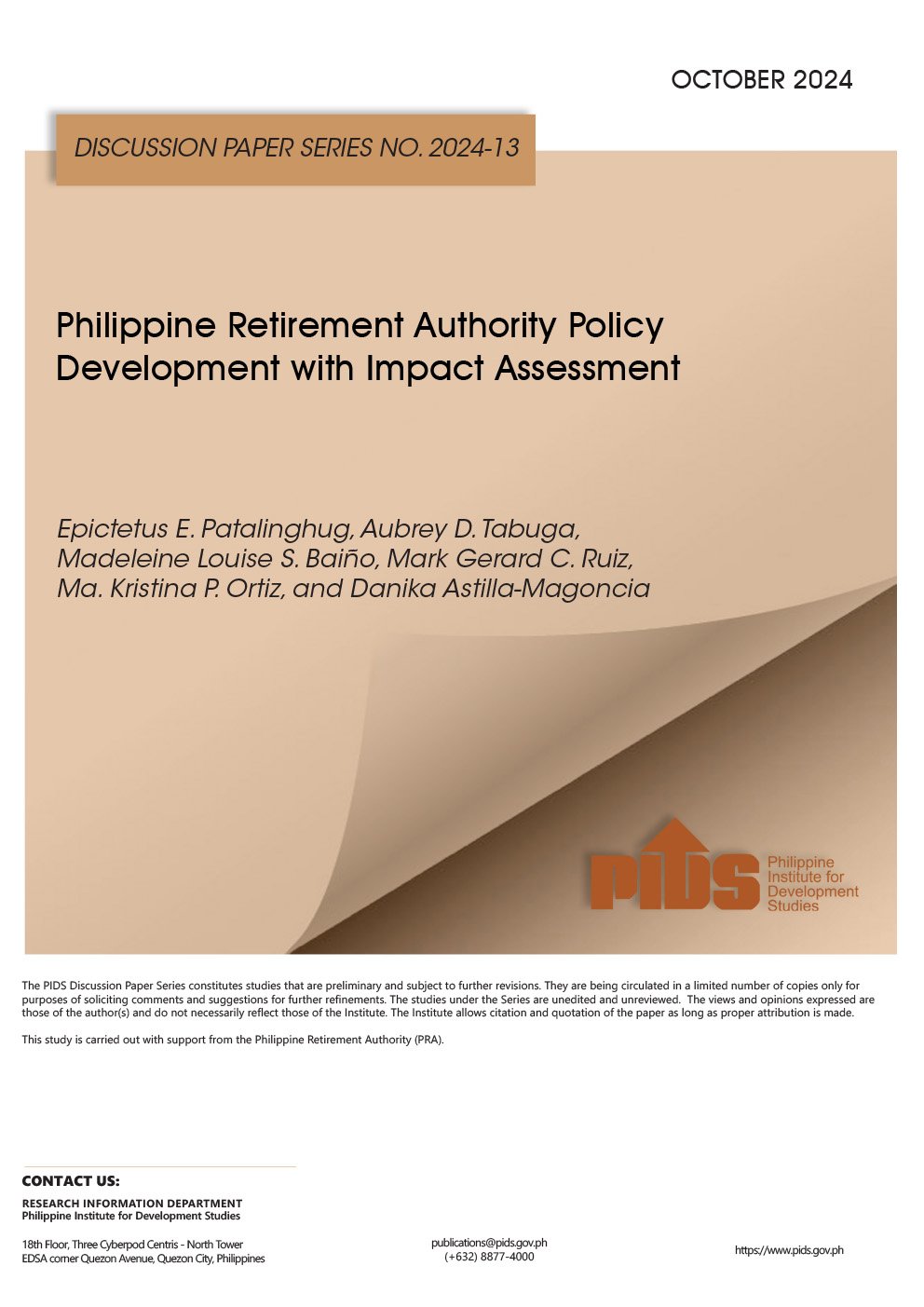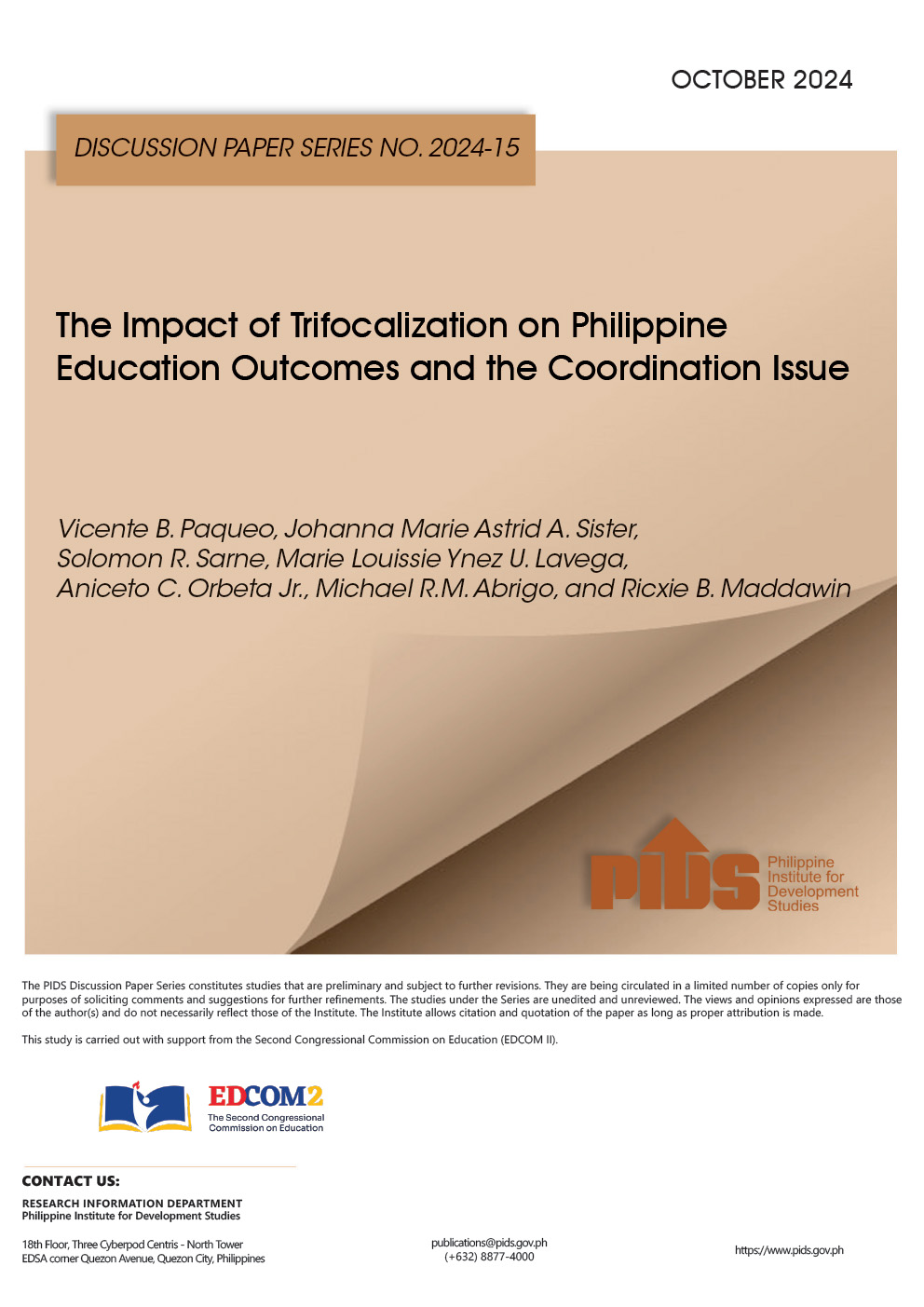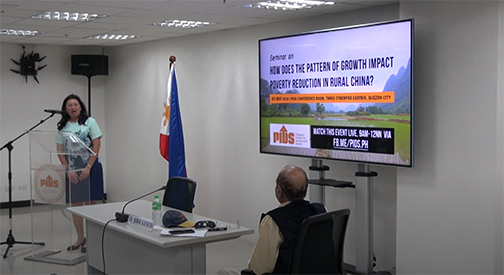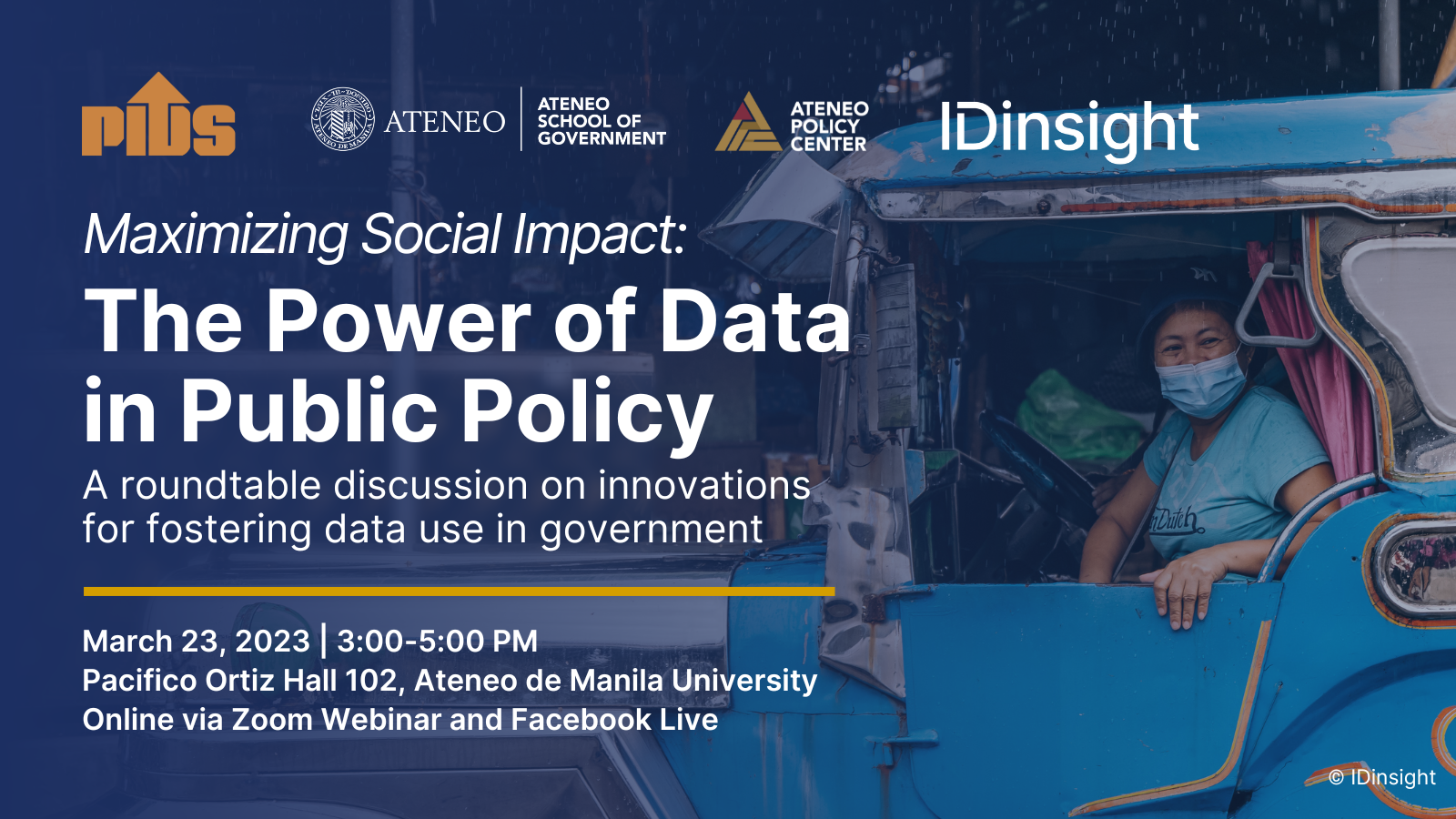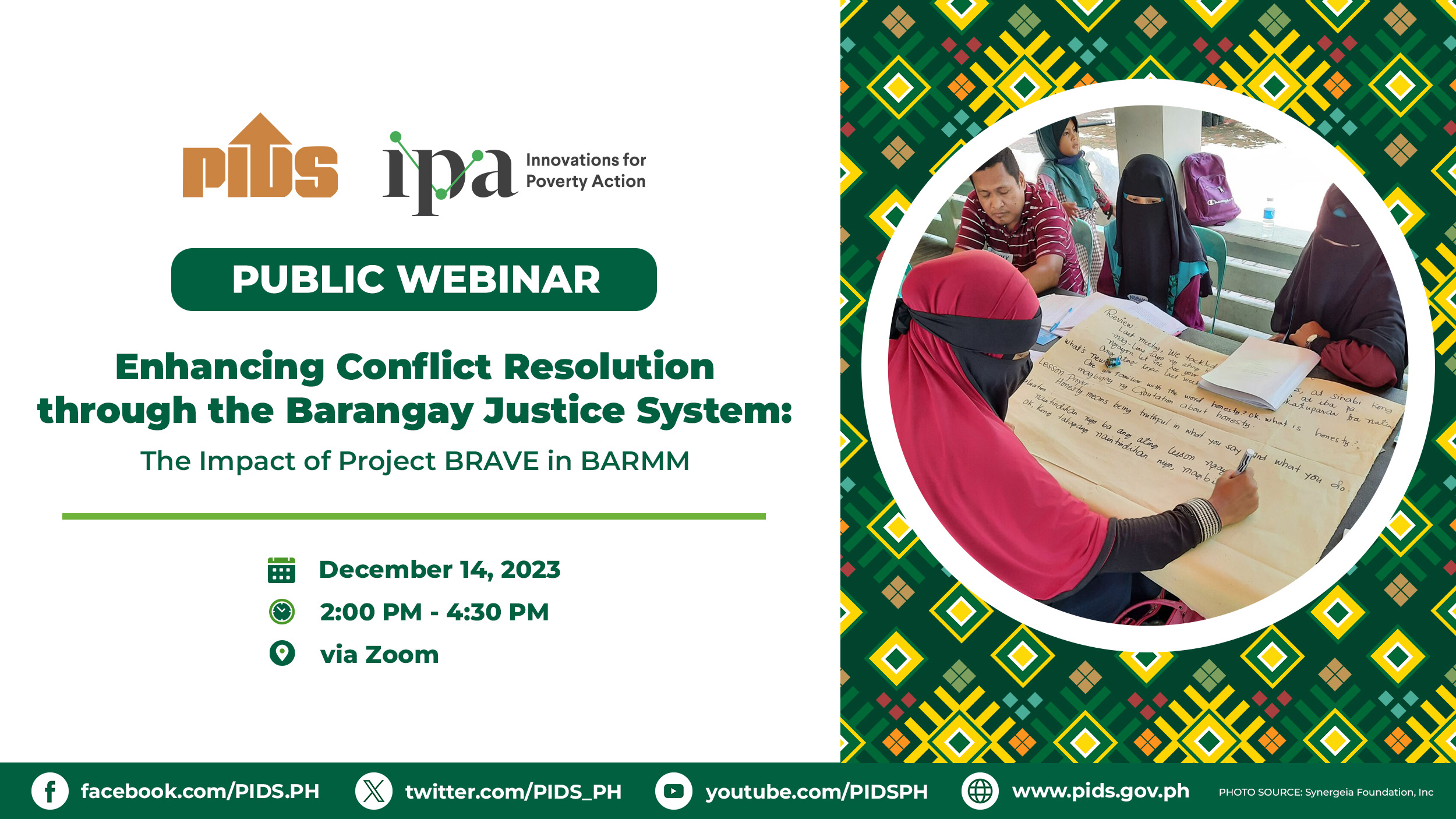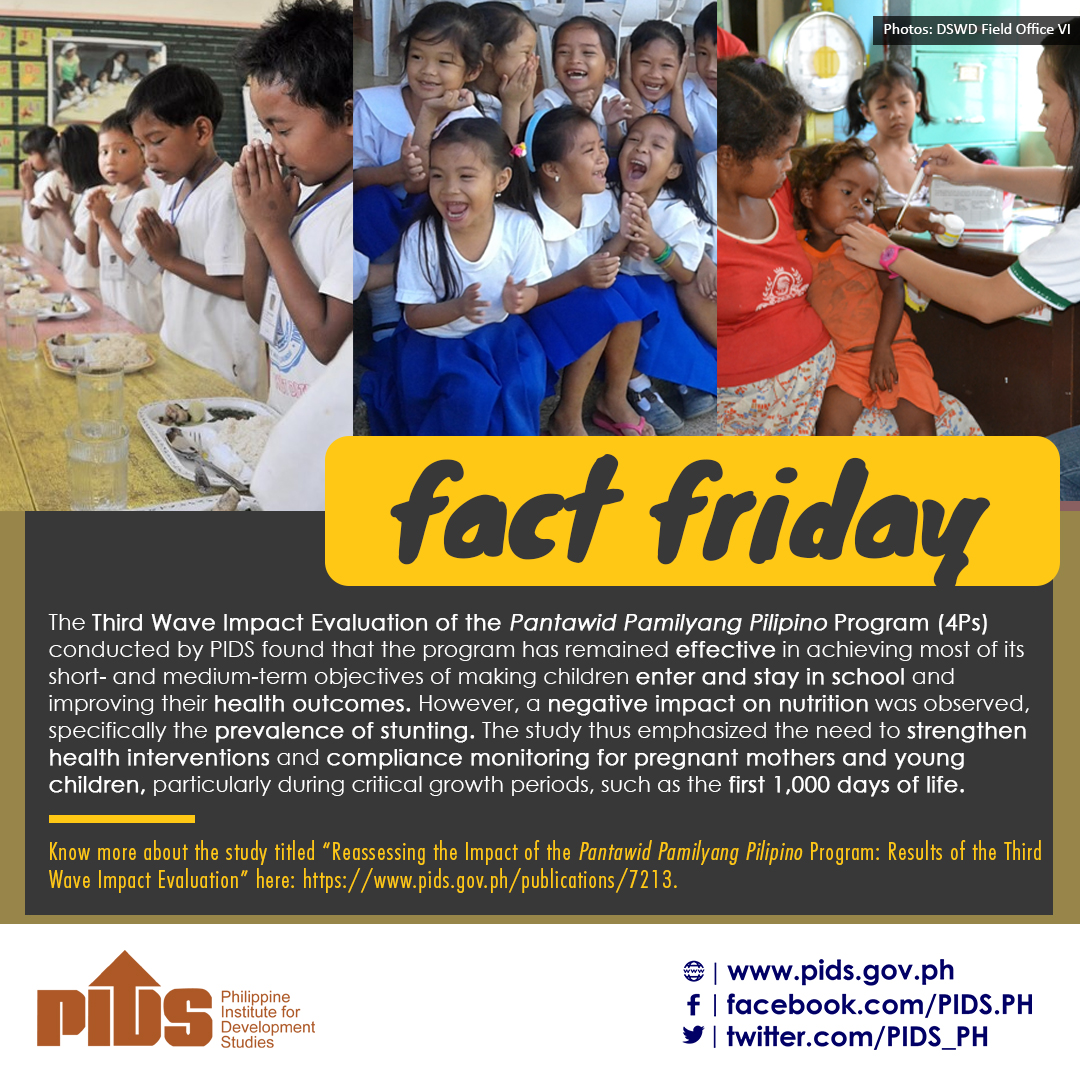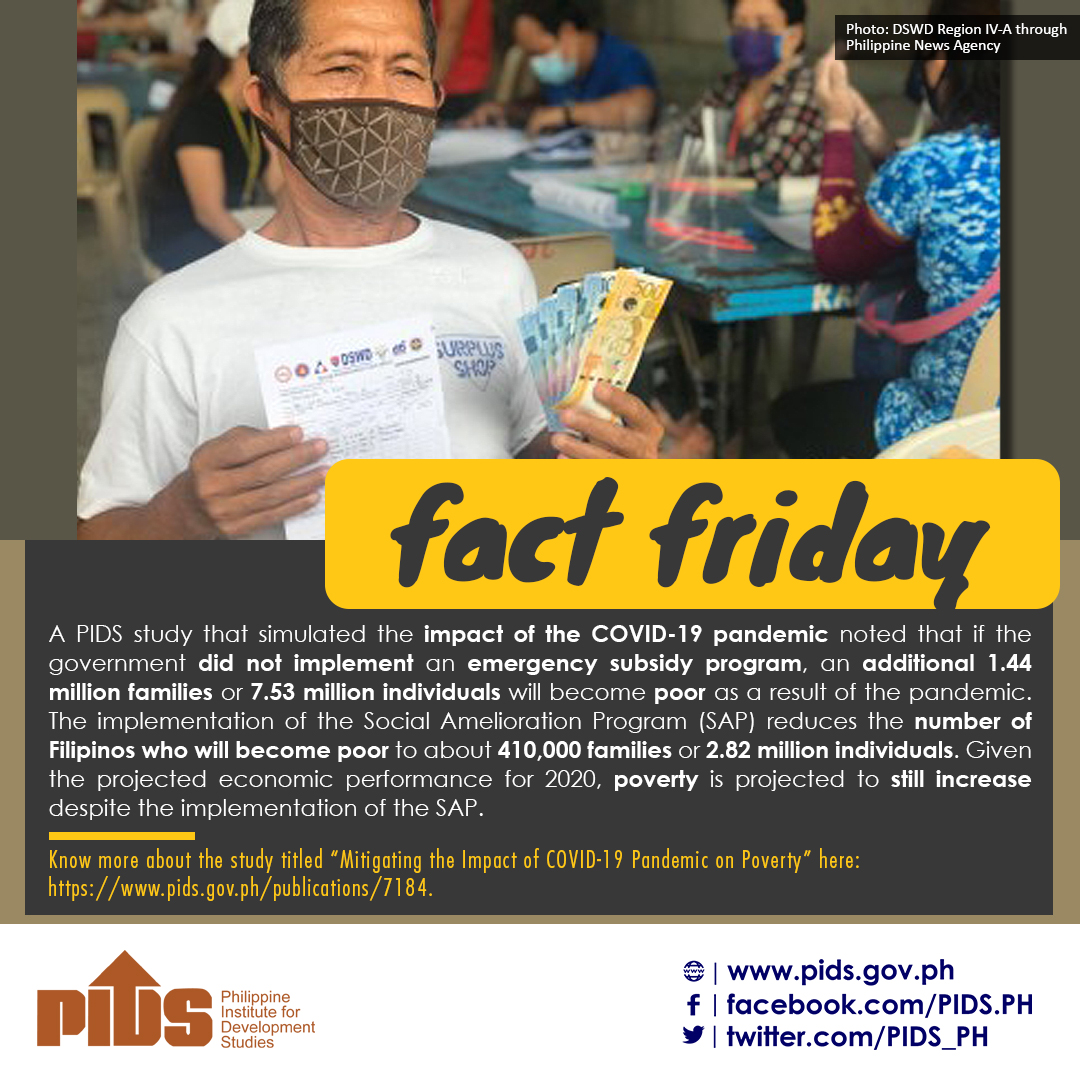
As part of its advocacy to engender evidence-based policy, the Philippine Institute for Development Studies (PIDS) has been conducting process evaluations and impact assessments of government policies and programs. Assessing the impact of policies is important to promote accountability in government and to ensure that taxpayers’ money goes to projects that have a significant effect on the lives of ordinary Filipinos—better standards of living, better health and education outcomes, and higher incomes, among others. Through ex ante analysis, the government will be able to make informed policy choices that will advance the common good. "Impact evaluation strengthens accountability to taxpayers and donors by providing a clear measure of the effects of a program on the beneficiaries' lives. Determining what strategies and interventions work and what needs to be fine-tuned or scrapped will help government design better programs and do more to alleviate poverty," PIDS President Gilberto Llanto has said.
For instance, an assessment of the prospective impact of fruits and vegetables research conducted by the Institute found high net present value, benefit-cost ratio, and internal rate of return with increased investments in horticulture research and development (R&D). Horticulture farmers are expected to benefit from technologies generated by the R&D projects (e.g., yield improvement, reduction in postharvest loss, etc.). Improvements in farm productivity are also expected to help in alleviating rural poverty. Analyzing the impact of microcredit, PIDS researchers found that the government’s Rural Microenterprise Finance Project hit only a limited number of the intended target as majority of the existing clients and the incoming clients were found to be not poor according to official definition. Results showed a mildly significant positive impact on per capita income, per capita total expenditure, and per capita food expenditure of loan availability. The recommendation was to review and constantly monitor the effectiveness of targeting procedures, and to assist the poor in selecting profitable projects.
This 2014, one of the Institute’s major work programs is a PHP300-million research project that will assess key government programs encompassing agricultural support services, health, education, infrastructure, fiscal incentives, disaster management, trade agreements, and even judicial services. PIDS has been tapped by the Aquino administration, through the National Economic and Development Authority, to lead this undertaking. Impact evaluation, ex ante and ex post, is envisioned to become a regular program at PIDS as stated in its research agenda.
You may access past evaluation studies conducted by PIDS using the SocioEconomic Research Portal for the Philippines. Simply type “impact evaluation” in the Search box.
Analysis of the impact of changes in the prices of rice and fuel on poverty in the Philippines
Impact of microfinance on rural households in the Philippines
The potential impacts of a free trade agreement with the European Union on the Philippine fisheries sector
Prospects for a Philippines-European Union Free Trade Agreement: Implications for agriculture
Impact assessment of the agricultural production support services of the DA on the income of poor farmers/fisherfolk: Review of the evidence
Assessment of prospective impact of fruits and vegetables research at the industry level in the Philippines: The Case of the ACIAR-PCAARRD Horticulture Project
Impact Assessment of National and Regional Policies Using the Philippine Regional General Equilibrium Model
For instance, an assessment of the prospective impact of fruits and vegetables research conducted by the Institute found high net present value, benefit-cost ratio, and internal rate of return with increased investments in horticulture research and development (R&D). Horticulture farmers are expected to benefit from technologies generated by the R&D projects (e.g., yield improvement, reduction in postharvest loss, etc.). Improvements in farm productivity are also expected to help in alleviating rural poverty. Analyzing the impact of microcredit, PIDS researchers found that the government’s Rural Microenterprise Finance Project hit only a limited number of the intended target as majority of the existing clients and the incoming clients were found to be not poor according to official definition. Results showed a mildly significant positive impact on per capita income, per capita total expenditure, and per capita food expenditure of loan availability. The recommendation was to review and constantly monitor the effectiveness of targeting procedures, and to assist the poor in selecting profitable projects.
This 2014, one of the Institute’s major work programs is a PHP300-million research project that will assess key government programs encompassing agricultural support services, health, education, infrastructure, fiscal incentives, disaster management, trade agreements, and even judicial services. PIDS has been tapped by the Aquino administration, through the National Economic and Development Authority, to lead this undertaking. Impact evaluation, ex ante and ex post, is envisioned to become a regular program at PIDS as stated in its research agenda.
You may access past evaluation studies conducted by PIDS using the SocioEconomic Research Portal for the Philippines. Simply type “impact evaluation” in the Search box.
Analysis of the impact of changes in the prices of rice and fuel on poverty in the Philippines
Impact of microfinance on rural households in the Philippines
The potential impacts of a free trade agreement with the European Union on the Philippine fisheries sector
Prospects for a Philippines-European Union Free Trade Agreement: Implications for agriculture
Impact assessment of the agricultural production support services of the DA on the income of poor farmers/fisherfolk: Review of the evidence
Assessment of prospective impact of fruits and vegetables research at the industry level in the Philippines: The Case of the ACIAR-PCAARRD Horticulture Project
Impact Assessment of National and Regional Policies Using the Philippine Regional General Equilibrium Model

